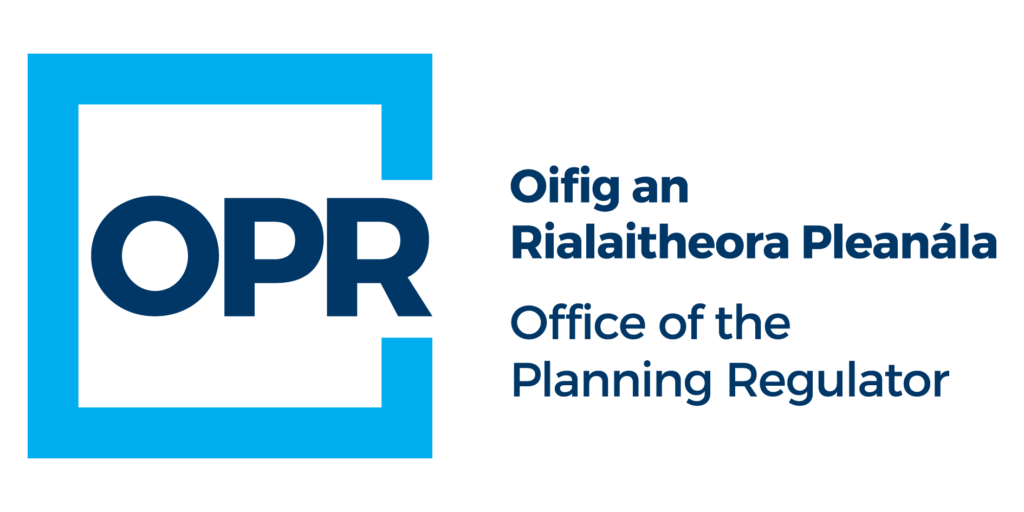In a report published today (21st May 2024), the Office of the Planning Regulator (OPR) found that Meath County Council operates effective and robust systems and procedures in the delivery of its statutory planning functions, within the context of a complex and demanding environment.
This is the first time that the systems and procedures used by Meath County Council’s planning department have been reviewed by the OPR. The report considers Meath County Council’s performance across a range of functions and makes eight recommendations as to how existing service levels can be maintained and improved.
Commenting on the review, Planning Regulator, Niall Cussen said:
“Meath County Council’s planning department operates in a complex planning environment, experiencing some of the most significant rates of growth in the country while maintaining an emphasis on protecting Meath’s rural character. In recent years the Council has been managing higher than average numbers of planning applications, many of which are large in scale and complex in nature, while striving to maintain a sensitive and sustainable approach to development.”
“Despite the pressures under which it is operating, the review found that Meath County Council’s planning department is generally delivering its statutory planning functions in a satisfactory manner with areas of service improvement to include the resourcing of a large programme of forward planning, the enforcement of planning breaches and stronger codes of practice in relation to conflicts of interest.”
The review also highlighted examples of innovative practice by Meath County Council in customer services such as the development of a customised software solution to assist in managing the recently introduced statutory requirement that planning compliance submissions are dealt with in an eight-week timeframe.
Commenting on the Council’s approach to planning conditions and compliance, Niall Cussen said:
“Meath County Council’s approach to introducing new systems to enhance customer service provides a good-practice example of how planning departments should continually adapt to provide improved public services in an ever challenging and changing legislative environment.”
A theme which appeared throughout the OPR’s report is the challenge for Meath County Council’s planning department to successfully deliver on their many responsibilities against a background of significant pressures on resources.
When addressing the necessity for additional resources, Niall Cussen said:
“The importance of plan-led development to ensure that local, regional and national objectives can be delivered successfully cannot be over-stated. A well-resourced planning department is critical to delivering on Meath’s role in the promotion of sustainable settlement and transport strategies in urban and rural areas. The resourcing of its planning department is an ongoing priority for Meath County Council which will critically depend on wider national actions to promote an uptake in planning education and training-in new talent.”
Concluding Mr Cussen noted:
“Throughout the review process, it was evident that the planning department benefits from clear leadership, a strong team ethic and a positive working culture. I appreciate Meath County Council’s dedication to enacting the review recommendations and their ongoing support in this matter. My team will maintain active involvement with the Council to track their advancements and offer support whenever needed.”
ENDS
Notes to editors
Section 31AS of the Planning and Development Act 2000 (as amended) gives the OPR the discretion to review the systems and procedures used by local authorities in performing their planning functions.
An OPR review is improvement-focused and intended as a developmental resource for the planning system, with recommendations arising from the process designed to enhance the delivery of services to the public.
The OPR applies a broad rating in respect of the systems and procedures across the key operational processes in planning service delivery. The ratings are defined as follows:
- Satisfactory: where it has been demonstrated that the systems and procedures are adequate to effectively deliver the statutory function on an ongoing basis and to meet key business objectives.
- Unsatisfactory: insufficient evidence has been provided that appropriate systems and procedures are in place, thereby creating an unacceptable weakness with regard to the ability to adequately deliver the statutory function and to meet key business objectives.
The ratings and recommendations are provided to encourage the ongoing improvement of robust procedures in relation to statutory functions and collectively evaluate the effectiveness and efficiency of the delivery of the local authorities planning services.

